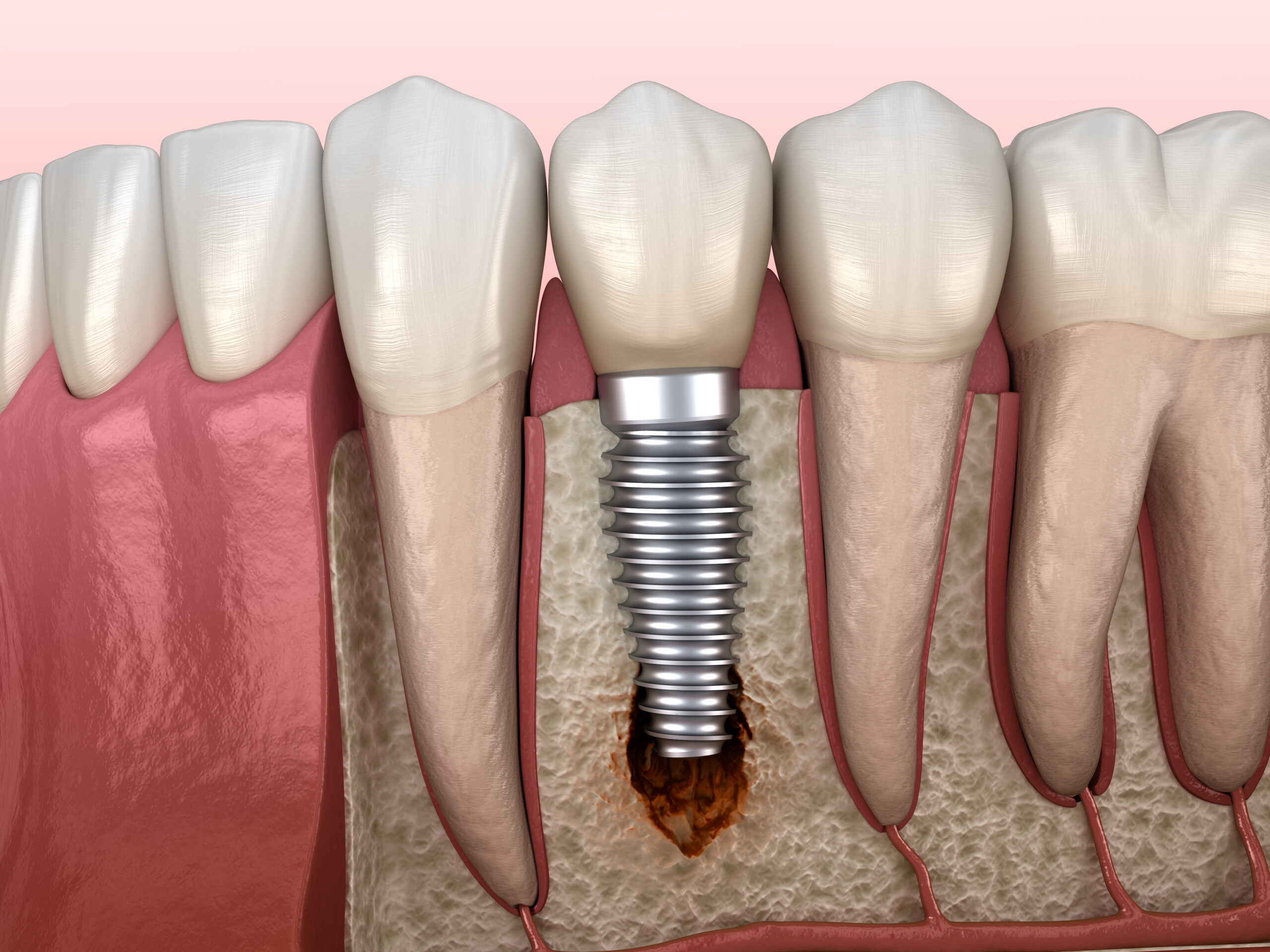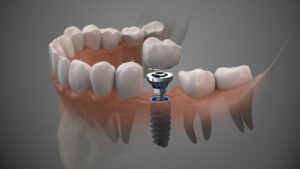Peri-implantitis in Oak Brook, IL, can damage the gum and bones surrounding a dental implant. While people should go to a skilled and trained periodontist to get their peri-implantitis properly treated, not everyone does. There are numerous things that could happen if people allow their peri-implantitis to progress.
Interested in learning more? Continue reading to learn about what could happen if people allow their peri-implantitis to progress.
What Happens If Peri-Implantitis In Oak Brook, IL Is Allowed To Progress?
When people have peri-implantitis, harmful oral bacteria harms the gum and bone tissues surrounding the dental implant post. If peri-implantitis is not immediately treated, it will start to destroy the gum and bone, putting the stability of the dental implant post it is surrounding at significant risk. In time, the dental implant post will lose its stability and eventually come out on its own or need to be removed by a quality periodontist.
Without healthy and stable dental implants, people could lose their dental health, function, and beauty. That is why it is important for those who have peri-implantitis, to go get it expertly treated.
How Can Peri-Implantitis Be Treated?
Although peri-implantitis can cause plenty of oral health issues, it can be effectively treated through advanced technology. One proven technique that a periodontist uses to treat peri-implantitis is the BIOLASE WaterLase® REPaiR Implant™ protocol. This groundbreaking protocol relies on the power, convenience, and dependability of minimally invasive dental lasers to get rid of the active bacterial infection.
The BIOLASE WaterLase REPaiR implant protocol sanitizes the soft and hard tissues around the dental implant post, encouraging the gum to reattach itself to the dental implant post. The BIOLASE WaterLase protocol has saved many patients from experiencing complete dental implant failure. Patients with early-stage peri-implantitis who undergo this state-of-the-art protocol are frequently able to keep their dental implants.
How Will I Know If I Even Have Peri-Implantitis?
Of course, people cannot get peri-implantitis treatment unless they see a periodontist at the first sign that they have the condition. When people have the following peri-implantitis symptoms, they should go see the periodontist to get it treated right away:
- Swollen gums around the dental implant
- Red gums around the dental implant
- Discomfort when putting any biting force on the dental implant
- Pus coming from the dental implant site
- Loosening of the dental implant, even if it is just a little
- A fever that accompanies other possible signs of oral infection
The sooner people with peri-implantitis are seen by a periodontist, the sooner they can save their dental implants and their quality of life.
See Us Now So We Can Prevent Your Peri-Implantitis From Progressing
Dental implants have a high success rate, especially when they are placed by our knowledgeable and caringperiodontist. When peri-implantitis happens, however, our periodontist can use the BIOLASE WaterLase REPaiR Implant protocol to get it treated.
Why wait to prevent your peri-implantitis from progressing? Get in contact with Dr. Amarik Singh and our exceptional team at our Periodontal Implant Associates office to schedule an appointment today!



